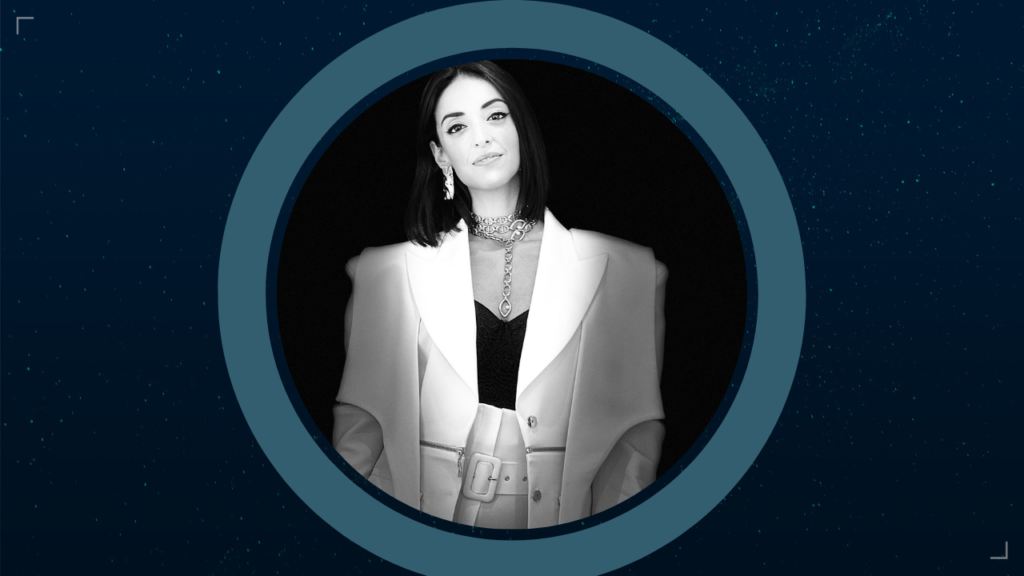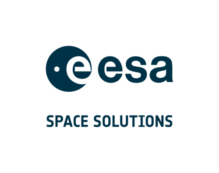News
International Day of Women and Girls in Science – My Story: Bianca Cefalo

My Story: Bianca Cefalo, CEO and Co-Founder, Space DOTS
I remember being a kid sitting with my dad in his garage (he had a car demolition business) and growing madly curious about how all those gears and parts and wires would make cars and engines work. He had such a spark in his eyes and I remember saying to myself: “one day I hope to have a job that will make me as happy and obsessed as my dad is right now”.
My childhood was rough though. I had to learn how to grow into an adult and a caregiver figure for myself and my family much faster and more prematurely than I was meant to. So Maths, Physics, Astronomy, Science, and the otherworldly endeavours of engineering and space exploration became my escapism from my rocky reality, my safe place. Learning how things worked, and drowning myself into equations and the big questions of human existence became my coping mechanism.
From my dad’s garage my fascination moved to Formula 1 and aerodynamics of racing cars, but I had no idea of where to study any of that or what to do with it, so when I was a teen I looked up on the internet: “How do I become an expert in aerodynamics?” and the answer was “Go study Aerospace and Astronautics Engineering”.
I went back home and I informed my parents of my aspiration to become an Aerospace Engineer. They thought I was crazy and wholeheartedly supported my choice, especially since no one in our family had ever attended university.
That was the beginning of my space journey.
I earned my MSc in Aerospace and Astronautics Engineering from the University of Naples ‘Federico II’ in Italy, specializing in Spacecraft Systems, Hypersonic Aerodynamics, Microgravity and Satellite Remote Sensing.
In 2013, I made my way to Berlin, Germany and was appointed as the youngest Italian analyst for the HP3 Instrument on the NASA/JPL Insight Mars Mission, which successfully landed on Mars in 2018. During my five years in Berlin, I gained a wealth of knowledge in thermal engineering, spacecraft thermal control solutions, simulations, lab tests, integration, qualification, and satellite downlink data correlation. This experience earned me the position as Space Systems Product Manager at Airbus Defence and Space in Stevenage, UK, in 2018. There I met James and later co-founded our space tech business, Space DOTS, to address a problem we both encountered during our corporate careers.
In the meantime, I had moved from product management at Airbus to Sales at the US-based startup Carbice in 2021, as they provide the best CNT-based thermal interface solution for spacecraft applications.
In 2021, Space DOTS was also born and I became its CEO and co-founder, making space technology advancement for the betterment of humankind not just my career but my life’s purpose.
Inspiring future generations
Our daily life has become fully dependent on the by-products of satellite technology and space exploration findings.
Outer space is an environment that provides human beings with rich new sources of information, encouraging adaptation and evolution. Planning a human space programme is the equivalent to planning the evolution of human civilization.
However, we can’t transition to the next level of Humankind existence if only one single gender of our species is contributing to the design of its future. That would be extremely limiting, disingenuous and overall a very bad idea.
We must arm more women with the knowledge, the expertise, the tools and the power to sit at the big decisions’ tables and influence the future trajectory of Humanity, on Earth and beyond.
Addressing the challenges for women in science
When it comes to women and girls looking to dive into a career in science, there are a few hurdles we often face, such as:
- The Herculean Task of Finding Role Models: It can be difficult for women and girls to envision themselves in a scientific career without seeing successful female scientists to look up to.
- Bias and Discrimination: Sadly, many women and girls face gender bias, harassment, and discrimination in the workplace, which creates a hostile environment and stunts their growth opportunities.
- The Work-Life Balancing Act: Women often face more pressure than men to balance their careers with family responsibilities, making it tougher for them to advance in their field.
- Stereotypes and Outdated Gender Norms: Society’s rigid gender roles and expectations can make it challenging for women and girls to pursue careers in science, and for male colleagues to recognize their contributions.
To address these challenges and make science a more inclusive field for women and girls, here are a few things that can be done:
- Increase Representation: Encourage girls to study science from a young age and provide female scientists with more visibility in the media and public eye.
- Promote a Safe and Supportive Work Environment: Establish and enforce policies and programs aimed at preventing harassment, discrimination, and bias. Create a culture that prioritizes work-life balance and encourages inclusivity.
- Bust Those Stereotypes: Educate and outreach to break down gender roles and expectations. Encourage girls to be who they want to be and pursue the careers they dream of.
- Match Them with Mavericks: Connect women and girls with successful female scientists to get the support, guidance, and inspiration they need.
- Invest in Workforce Diversity Programs: Companies and organizations should invest in diversity and inclusion initiatives that target and support women and girls in STEM fields.
By taking these steps, we can create a more level playing field and help women and girls achieve their full potential in science and technology.
I’ll leave here a quote I’ve been living by since I was a teen, by George Bernard Shaw:
“People are always blaming their circumstances for what they are. I don’t believe in circumstances. The people who get on in this world are the people who get up and look for the circumstances they want, and if they can’t find them, make them.”
My advice to women and girls wanting to pursue a career in science …
Your expertise, hard work, dedication, honesty, and personality cannot be disputed. Focus on honing these qualities and ignore the opinions of detractors. Ask as many questions as you need to, no matter how seemingly silly, and embrace your inner nerd.
Seek guidance from influential mentors who can introduce you to new opportunities in the field you’re passionate about. Don’t try to fit in, as it won’t bring success and people will forget about you.
Stand up for yourself and those around you, and never be afraid to voice your thoughts.
Above all, have fun! The achievements of science and engineering are truly magical.



